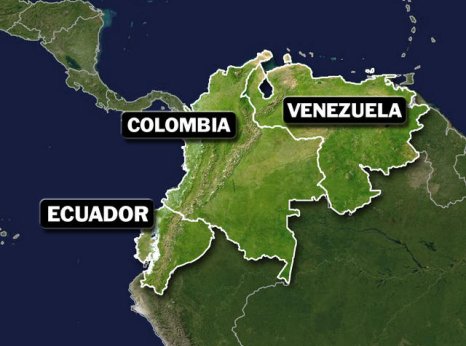Ecuador: Protection without conditions needed for child climate activists

Leonela Moncayo is a climate activist from the Ecuadorian Amazon. She is the daughter of two recognized human rights defenders, Donald Moncayo and Silvia Lorena Ordoñez Zambrano from the strategic litigation organization "Unión de Afectados por Texaco" (UDAPT). Leonela is part of the group of Amazonian girls that, together with UDAPT, achieved a historic ruling against the operation of routine gas flaring in the provinces of Sucumbíos and Orellana in Ecuador. Routine gas flaring is one of the processes of oil extraction that contributes the most to climate crisis due to the emission of methane, a greenhouse gas (GHG) more powerful than CO2. Methane is thought to be responsible for one-third of the net global warming since the industrial revolution. Routine gas flaring also has been linked with negative health impacts on fenceline communities, since it emits a variety of harmful gases and components.
On 29 July 2021, the Provincial Court of Justice of Sucumbíos established that the Ecuadorian State ignored the right to a healthy environment, disregarded the right to health of the plaintiffs and failed to comply with its obligations to mitigate climate change. The Court established that the State must gradually eliminate the gas flares, especially those near populated areas, and provide reparations for the affected communities. Since the date of execution of the ruling, only the public apologies, the presentation of a “Substitute Regulation of the Environmental Regulation for Hydrocarbon Operations” and two technical reports on routine gas flaring prepared by the Ministry of Energy and Mines have been complied with. No environmental remediation actions have been initiated, nor have the right to health or any other rights been repaired.
On 21 February 2024, four of the nine plaintiff girls, including Leonela Moncayo, attended a session in the Biodiversity Commission of the National Assembly that had the aim of auditing the correspondent authorities the compliance of the ruling. In her intervention, the Minister of Energy and Mines, Andrea Arrobo, said that the government has “eliminated 2 flares” and thus “they have already complied with the ruling”. She mentioned that “one thing is to insist on eliminating gas flaring and another one is to cause panic”, underestimating the dimension of the problem. Also, the minister Andrea Arrobo insinuated the girls were “manipulated”, stigmatizing them like Ecuadorian authorities have done in the past with other environmental defenders.
The four plaintiff girls, including Leonela Moncayo, raised their voice to refute the minister’s declarations. They took the microphone and refuted the declaration of the compliance of the ruling, mentioning that according to Ombudsman's Office, the gas flares have increased from 447 to 486. Also, one of the plaintiffs told the authorities “How are you going to say we are being manipulated, we are fighting for our rights?”. Finally, Leonela, with tears in her eyes told the minister and parliamentarians that what girls and communities obtained from them in that session was “a pittance, a mockery". UDAPT, Leonela and her parents think the intimidation they suffered on 26 February was a retaliation against Leonela and the other plaintiff girl’s protest in the National Assembly, and in general their activism to ensure authorities comply with the ruling.
Amnesty International received information that the local prosecution is carrying out the investigation about the attack against Leonela and her family. In this process of investigation, authorities have offered protection of the nine girls and their families with the conditions of not speaking up and stopping their activism. This goes against the international human rights obligations of Ecuador. The Interamerican Commission of Human Rights considers that “States have a particular duty to protect and grant effective and adequate guarantees to human rights defenders so that they can freely carry out their activities, avoiding actions that limit or hinder their work, since the work they carry out constitutes a positive and complementary contribution to the efforts made by the State”.
The Declaration on Human Rights Defenders makes it clear that states have the primary responsibility to “protect, promote and implement all human rights and fundamental freedoms”. This necessarily implies ensuring "the protection by the competent authorities of everyone, individually and in association with others, against any violence, threats, retaliation, de facto or de jure adverse discrimination, pressure or any other arbitrary action as a consequence of his or her legitimate exercise of the rights” related to the defense of human rights. States have the obligation to ensure that human rights defenders have a safe and enabling environment in which to carry out their work. The same language is used in the Escazú Agreement about the situation of environmental defenders.
Amnesty International has documented how Ecuadorian state has failed in the past to conduct criminal investigations and ensure protection measures to human rights defenders and leaders adequately and effectively, specifically, Amazonian women. It is time for Ecuador to protect human rights defenders, especially land, territory, and environmental defenders, and guarantee them a safe and enabling environment to carry out their work.